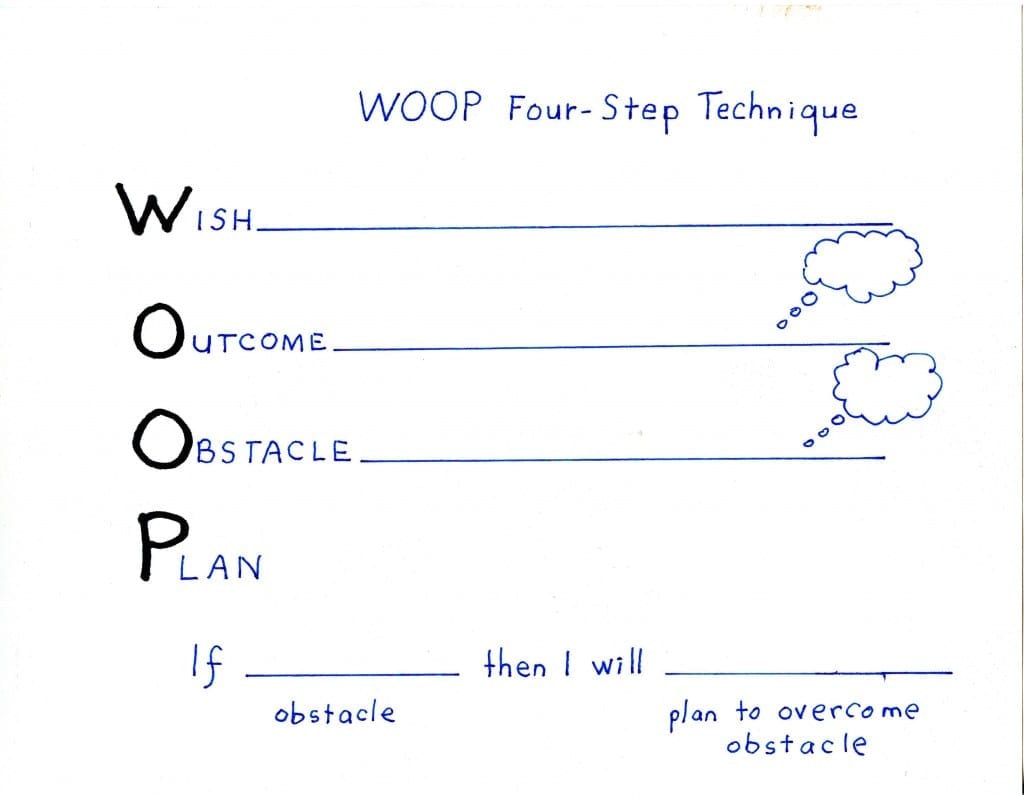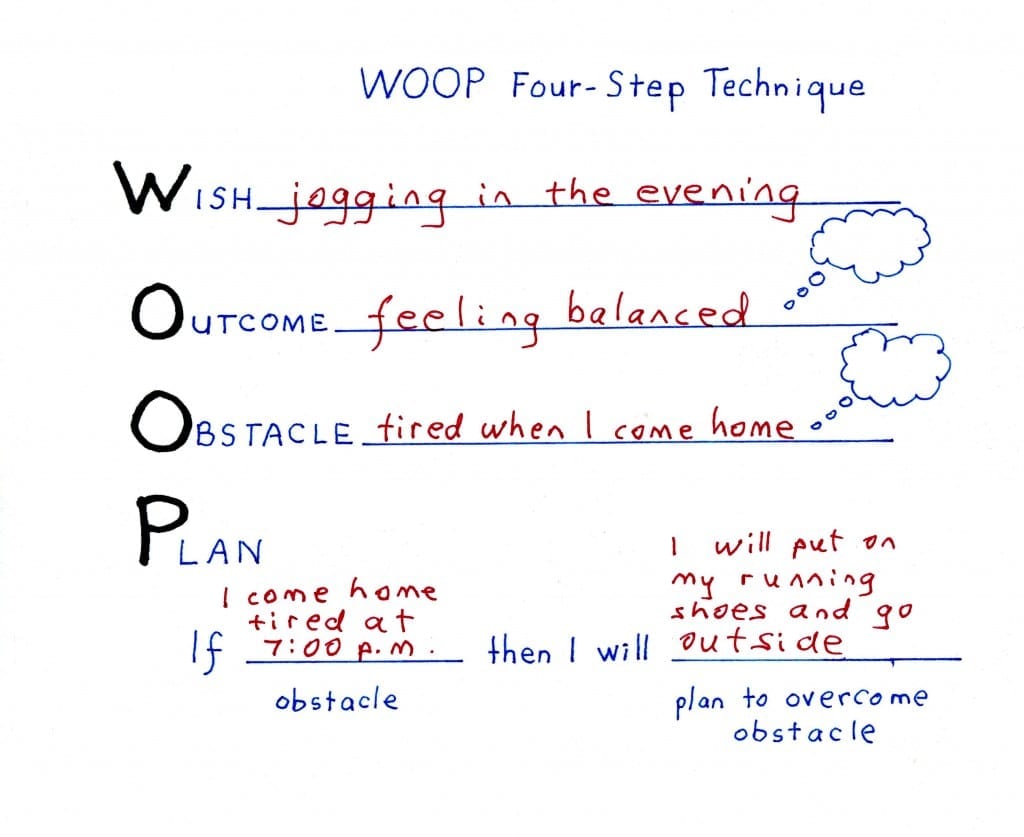WOOP (Oettingen 2014): Wish | Outcome | Obstacle | Plan
For many years, I’ve had several projects on the go at the same time, and am always looking for better ways to get things done.
Among the resources that I’ve found helpful are the following:
Ellen Langer’s concept – a particular version, as she conceptualizes it – of mindfulness is useful. I’ve outlined her approach to mindfulness in a recent post:
Mindfulness stands in contrast to mindlessness
WOOP: Wish | Outcome |Obstacle | Plan
As well, I have an interest in research about how we go about learning things in the course of getting things done. This topic is highlighted in the following post, which refers among other things to the research of Gabriele Oettingen:
Below is a hand-drawn diagram created after reading Oettingen’s Rethinking Positive Thinking: Inside the New Science of Motivation (2014).
Sample application of WOOP (p. 145 of Oettingen 2014)
Updates
A Jan. 11, 2015 CBC Spark podcast is entitled: “Why our brains respond to positive affirmations.”
A Jan. 23, 2015 Globe and Mail article is entitled: “Rewired: Learning to tame a noisy brain. (Or, how you can use the power of neuroplasticity).”



Leave a Reply
Want to join the discussion?Feel free to contribute!